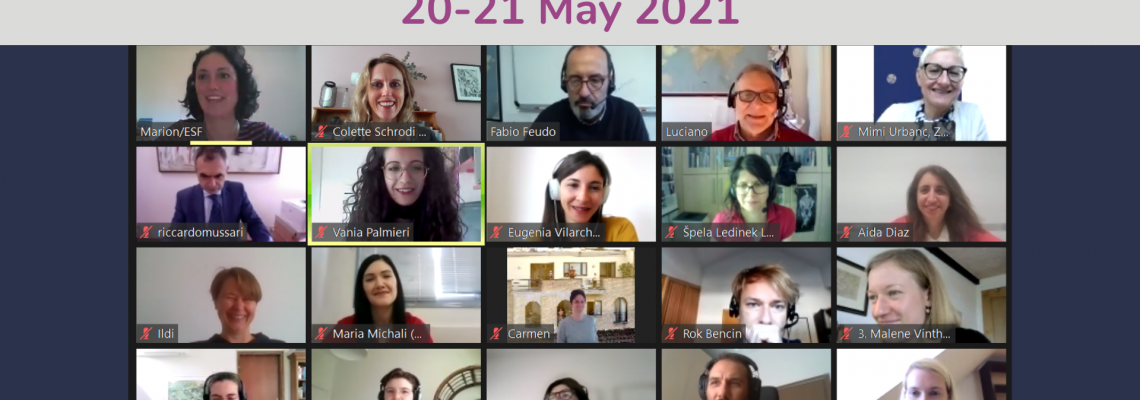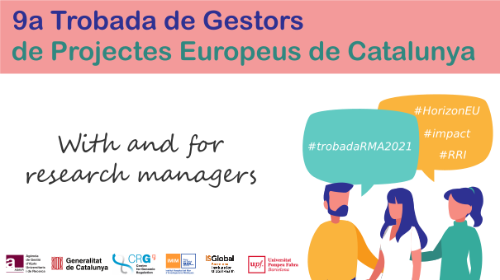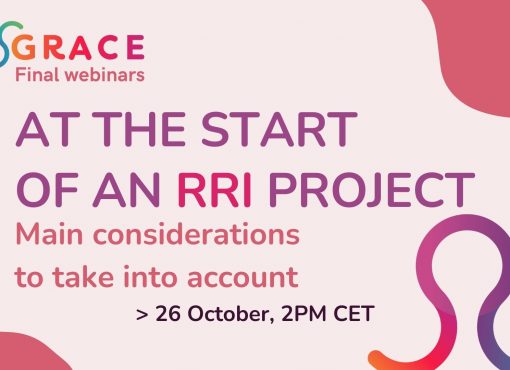
GRACE’s 3rd Mutual Learning workshop: Sustainability
After a first Mutual Learning Workshop dedicated to the design of grounding Responsible research and innovation (RRI) actions, and a second one on how to implement them, GRACE partners gathered online on 20 and 21 May for their final Mutual Learning workshop on sustainability. These two days offered a valuable space-time bubble offered to discuss and reflect on the sustainability and capitalisation of the GRACE results on the long term.
As the GRACE project enters its last phase, partners seek to ensure continuity of the “grounding actions” developed within the project, and to autonomously implement new actions after the project lifetime.
A participatory structure
The workshop’s structure was chosen to be very participatory. Partners met in six breakout groups over the two days, each time one implementing organisation exposing a self-assessment note presenting their actions, and and another partner evaluating it. Participants then expressed their opinion, suggestions and possible solutions.
Participants exchanged very practical ideas and found it very instructive and helpful for the development of their roadmaps.
Developing new RRI keys
“A common denominator for most participants is that we realised how important the development of Governance key actions are, as this umbrella approach facilitates the implementation of grounding actions.” resumes Eugenia Villarcho from the European Science Foundation. “Regarding sustainability, a useful tip was to embed RRI in existing and new institutional documentation: i.e. by including dedicated sections to RRI or by revising this documentation with an RRI perspective.”
Vania Palmeri, from the Business and Law Department of the University of Siena appreciated that “future sustainability requires a governance structure, a budget line and leadership support”.
Sustainability can be achieved in many different ways, depending on the organisation’s situation. Examples include incorporating general RRI values and principles in the organisation’s strategic documents, having dedicated teams to develop further RRI actions, or including RRI training in the institutional training programme. “The secret to sustainability is to embed the spirit of RRI in the institutional culture” resumes Carmen from ECSITE.
There are obviously many other paths to sustainability. After the implementation of grounding actions, the last stocktaking phase of the project will include developing a sustainability plan for each implementing organisation.

